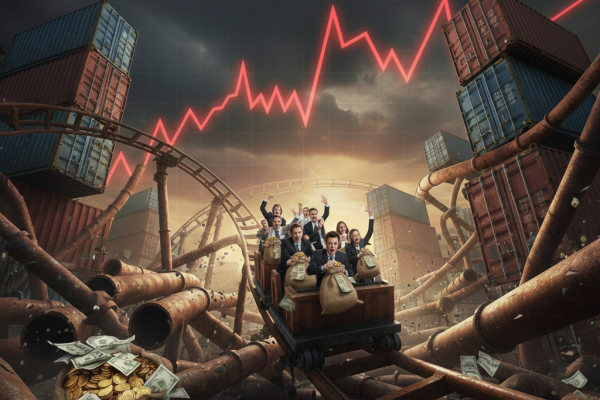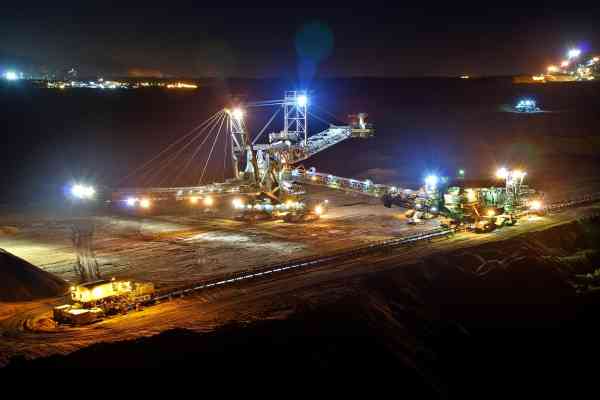September 13th, 2021 | 11:47 CEST
Bayer, Saturn Oil + Gas, TUI - Which share will be the first to take off?
We have often heard that the profit is in the purchase; however, it is difficult to predict the low of a share and then enter at that low. Often it is better to wait for a reversal using charting techniques, which increases the probability of finding a profitable trade. Those who buy falling knives have certainly suffered losses more often. But there are always stocks that are not "in" with investors, so it takes longer to get the share price going. Especially companies that have had problems in the past must first regain the trust of their shareholders. Today we analyze the prospects of three companies that have had problems in the past and want to take off.
time to read: 4 minutes
|
Author:
Armin Schulz
ISIN:
BAYER AG NA O.N. | DE000BAY0017 , SATURN OIL+GAS O.N. | CA80412L1076 , TUI AG NA O.N. | DE000TUAG000
Table of contents:

"[...] The Oxbow Asset now delivers a substantial free cash flow stream to internally fund our impactful drilling and workover programs. [...]" John Jeffrey, CEO, Saturn Oil + Gas Inc.
Author
Armin Schulz
Born in Mönchengladbach, he studied business administration in the Netherlands. In the course of his studies he came into contact with the stock exchange for the first time. He has more than 25 years of experience in stock market business.
Tag cloud
Shares cloud
Bayer - The Monsanto takeover is still a burden
Bayer's problem is the Monsanto acquisition in 2018 and the related litigation regarding the weedkiller Roundup with the glyphosate active ingredient, classified as a suspected carcinogen. Provisions in the billions were set aside; these had to be increased in the second quarter of this year. There was hope that the Group could settle the disputes by the end of the year, but currently, it does not look like that will happen. The Company is pursuing a concrete plan and has appealed to the Supreme Court. If the ruling there is favorable, an important step would be taken. Until then, Monsanto weighs heavily on the Group's earnings.
However, the bottom line is that business is good across the board. On August 5, the Company presented strong growth figures and raised its forecast for the current year. CEO Baumann said: "All divisions achieved double-digit percentage sales growth after adjusting for currency and portfolio effects. We expect continued positive sales momentum for all our businesses." Ultimately, the renewed provisions ruined the good figures. Positive news, especially from the pharmaceuticals division, is also currently fizzling out, as are acquisitions such as Vividion Therapeutics.
While analysts are almost universally positive, investors are currently focusing only on the problems with Monsanto. Since mid-May, the share has slumped by EUR 12 to below EUR 45, breaking critical support levels. Most recently, EUR 46.04. The next resistance is waiting at the multi-year low of EUR 39.91. The dividend yield is over 4.3%, and in terms of the price-earnings ratio (P/E), the Group is favorably valued. As an investor, you should wait for the break of the downward trend before getting in.
Saturn Oil & Gas - Debt paid-off in 2 years
Since acquiring a 6,700 barrel production of light oil, a new era has begun for Saturn Oil & Gas (Saturn). The transaction was fully completed on June 7, retroactive to April 1, and has since offered shareholders a unique perspective. On August 3, the Company announced the drilling of three wells to expand production this year.
On August 30, the Company presented its second-quarter figures. After the transaction, the debt stood at 119.2 million Canadian dollars (CAD), which had already been reduced to CAD 74.5 million by the end of June. The loans are to be repaid in 2 years at the latest. To ensure nothing goes wrong on the way, the management has already secured part of the production by options. In total, in the first 23 days of the new Saturn, the equivalent of over CAD 520,000 per day of crude oil and natural gas has been sold as of the end of Q2 2021. If production continues as it is, at least CAD 90 million will be added by year-end.
In the course of the presentation of the quarterly figures, it came to light that there are over 500 wells that are currently not producing. These may provide additional production volumes of up to 3,500 barrels per day after reworking. The Company forecasts a net income of CAD 65-70 million within 12 months. Proven production reserves are 39.2 million barrels but could be as high as 50.8 million barrels. So the net asset value is currently between CAD 0.45 and CAD 0.59 per share.
After the share price had already risen to CAD 0.215 at the end of May, pressure arose with the allocation of the new shares, which pushed the price down to CAD 0.11, i.e. below the issue price of CAD 0.12. Currently, the share price is around CAD 0.165. Thus, the current market capitalization is around CAD 83 million. Assuming revenues of 50.4 million by the end of the year, this results in a P/E ratio of currently 1.6. This value is still very favorable. As described above, the fair value is at least CAD 0.45.
TUI - A risk area for residents
TUI suffered more than almost any other company in Germany from the Corona pandemic. Lockdowns and travel restrictions had nearly brought the Germans' desire to travel to a standstill. Hopes were high that summer business would be good. Then uncertainty returned with the Delta variant, and the ongoing changes in the classification of risk areas did not exactly contribute to increased travel bookings either.
That can be clearly seen in the figures the Group presented on August 12. Compared to the previous year, sales slumped by 79.4%. Although there were also 1.5 million new bookings in the past quarter, the big summer business failed to materialize ultimately. The convertible bond from April was also increased by another EUR 190 million. Most recently, the Company announced reduced working hours for its travel agencies from October.
Stefan Baumert was appointed as the new boss for Germany after predecessor Marek Andryszak quit in July. The share closed the price gap from January last Friday and exited the trading session at around EUR 3.40. If there is no counter-reaction here, the December low of 2020 could be tested. In this case, the share would still fall to EUR 2.45. Several analysts have recently been critical of TUI, such as Nord LB, which has set the price target at EUR 2.70.
All companies have had problems in the recent past. Bayer is broadly enough positioned to weather the Monsanto litigation. The pharmaceutical sector, in particular, has potential. Saturn has moved into new spheres by acquiring 6,700 barrels per day and can quickly pay off its debt. The market has not yet fully recognized this. TUI is still suffering from Corona, and the way out of the crisis is not yet clear.
Conflict of interest
Pursuant to §85 of the German Securities Trading Act (WpHG), we point out that Apaton Finance GmbH as well as partners, authors or employees of Apaton Finance GmbH (hereinafter referred to as "Relevant Persons") may in the future hold shares or other financial instruments of the mentioned companies or will bet on rising or falling on rising or falling prices and therefore a conflict of interest may arise in the future. conflict of interest may arise in the future. The Relevant Persons reserve the shares or other financial instruments of the company at any time (hereinafter referred to as the company at any time (hereinafter referred to as a "Transaction"). "Transaction"). Transactions may under certain circumstances influence the respective price of the shares or other financial instruments of the of the Company.
Furthermore, Apaton Finance GmbH reserves the right to enter into future relationships with the company or with third parties in relation to reports on the company. with regard to reports on the company, which are published within the scope of the Apaton Finance GmbH as well as in the social media, on partner sites or in e-mails, on partner sites or in e-mails. The above references to existing conflicts of interest apply apply to all types and forms of publication used by Apaton Finance GmbH uses for publications on companies.
Risk notice
Apaton Finance GmbH offers editors, agencies and companies the opportunity to publish commentaries, interviews, summaries, news and etc. on news.financial. These contents serve information for readers and does not constitute a call to action or recommendations, neither explicitly nor implicitly. implicitly, they are to be understood as an assurance of possible price be understood. The contents do not replace individual professional investment advice and do not constitute an offer to sell the share(s) offer to sell the share(s) or other financial instrument(s) in question, nor is it an nor an invitation to buy or sell such.
The content is expressly not a financial analysis, but rather financial analysis, but rather journalistic or advertising texts. Readers or users who make investment decisions or carry out transactions on the basis decisions or transactions on the basis of the information provided here act completely at their own risk. There is no contractual relationship between between Apaton Finance GmbH and its readers or the users of its offers. users of its offers, as our information only refers to the company and not to the company, but not to the investment decision of the reader or user. or user.
The acquisition of financial instruments entails high risks that can lead to the total loss of the capital invested. The information published by Apaton Finance GmbH and its authors are based on careful research on careful research, nevertheless no liability for financial losses financial losses or a content guarantee for topicality, correctness, adequacy and completeness of the contents offered here. contents offered here. Please also note our Terms of use.




